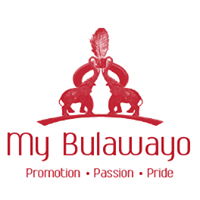Driving Laws
Seat Belt Laws
Only the front seat occupants of a car need wear a seat belt but we recommend that everyone wears one where fitted. In hire cars, all occupants must wear a seat belt.
Drinking and Driving
The drink driving laws in Zimbabwe are the same as in the UK. You must have no more than 80mg of alcohol per 100ml of blood. Drink driving is a big problem in Zimbabwe and as such the police are tough on stopping it. For that reason we recommend you don’t drink and drive.
Must Have Documents
You must carry your driving licence – an international driving licence is required in many cases , your proof of insurance to the minimum third party level and your registration documents. It’s also a good idea to have a copy of your passport.
Speed Limits
Minimum Driving Age
You only have to be 16 to drive in Zimbabwe but for hiring a car you’ll need to be a minimum of 21 in some cases and 23 in most. Under 25 years old you’ll have to pay a young drivers’ excess.
Safety Camera Warning Devices
Speed trap detectors are not illegal in Zimbabwe but we always recommend that you stick to the speed limit rather than try to beat the system. It’s safer for you and for other road users.
On the Spot Fines
There is a high level of corruption in Zimbabwe and it extends into the police force. If you are stopped, you are likely to be asked for the ‘fine’ for your infringement in cash. If you can refuse safely you should do so as paying simply perpetuates the problem. In many cases it is better to pay and depart quickly.
Child Safety Rules
In Zimbabwe there are no specific laws for child safety in cars; the onus is on the parents. If you are travelling with children, ask when you book your hire car and we’ll ensure that your car is fitted with the appropriate seats.
Insurance
A minimum of third party insurance is compulsory in Zimbabwe and you must carry proof of it by way of a valid insurance certificate.
Rules of the Road
Towing Regulations
If you are towing a vehicle in Zimbabwe you must display a white T sign on the right hand side of the towed item’s front and a red T sign on the right hand side of its rear.
Speed Cameras
Speed traps using hand held cameras are commonplace and will result in a ticket being issued for a fine. There are no fixed speed cameras in Zimbabwe at the time of writing.
Using Mobile Phones when driving
In Zimbabwe it’s illegal to talk or text on a mobile phone whilst driving unless you have a hands free kit.
Parking
Motor Way Signs
There are motorways in Zimbabwe and they are subject to tolls. Motorway signs are green with white writing.
Phrases
English is the national language of Zimbabwe so you’ll have no trouble being understood.
Traffic Lights
In Zimbabwe traffic lights follow the same sequencing that they do in most of the world. You should be aware that many carjacking incidents take place on red lights at night so the recommended procedure is to approach a red light carefully and, if the junction is clear, proceed across it carefully.
Toll Roads
The motorways are subject to tolls in Zimbabwe as are the border crossings into South Africa. Tolls are low, typically $1 to $5.
Emergency
The emergency number in Zimbabwe is the UK standard 999 for all emergency services but you can also use 993 for the ambulance, 994 for the fire department and 995 for the police.


